When it comes time to start feeding babies solid foods, there are lots of opinions. Rice cereal is commonly suggested as the best food to start out with. Is it really the best option though?
By Sarah Nichols, Contributing Writer
Have you ever wondered how rice cereal became the most recommended first solid to feed babies? I always just assumed that when I had kids I would feed them rice cereal and baby food. However, after the traumatic birth of my first-born son, I began to question most things that are considered standard these days.
In fact, the whole idea of rice baby cereal seemed counter-intuitive. After all, it is highly processed and full of synthetic vitamins, which we generally try to avoid. So I did what I always do and dove head-first into the research.
Why Does Everyone Start with Baby Cereal?
The first question I had to ask myself was: “Why is rice cereal so popular?” The answers seem pretty clear.
1) Rice cereal is fortified with iron. After about 6 months of age, babies need to find other sources of iron besides breastmilk or formula, so many choose fortified baby cereals. (1)
2) Rice cereal is hypoallergenic. Many pediatricians recommend starting with rice cereal because it is a single grain and it is rare to have a rice allergy.
3) Many tired, but well-intentioned moms have been told that feeding their baby rice cereal will help them to sleep longer at night. (Even though recent studies have shown babies fed rice-cereal before 4 months slept less than babies who had no solids.(2))
4) Many parents feel the bland taste of white rice and smooth texture make it a perfect food for teaching a baby how to swallow solids.
Is Rice Cereal Really a Good Choice?
First, we must remember that infants have survived and thrived for thousands of years without eating rice cereal. Rice cereal wasn’t even invented until around the time of the Industrial Revolution (3), therefore, it is clearly not a NECESSITY. However, as a convenience, is it good for our babies? I don’t think so and I’ll tell you why.
Nutrition
It is important to feed our babies nutrient-dense food. At such a young age, they don’t eat much, so what they do eat really needs to matter nutrient-wise. Although white rice cereal is fortified with synthetic vitamins, there are many other real-food options that contain more nutrients and are much healthier for their little bodies.
Starch
White rice cereal is a starch and converted to glucose through the digestion process. Some research suggests that starting our kids on starchy foods, develops in them a taste preference for starchy foods. This could ultimately lead to obesity and diabetes later on down the road. (4) Now white rice cereal is obviously not the only reason a child may become obese or develop diabetes, but it certainly appears to be a factor.
Synthetic Iron
Rice cereal is fortified with a synthetic form of iron which is not absorbed as readily as naturally occurring iron. Furthermore, introducing iron-fortified foods at an early age can actually reduce how efficiently your baby is able to absorb iron. Here is what Kellymom.com has to say about it:
“As long as your baby is exclusively breastfed (and receiving no iron supplements or iron-fortified foods), the specialized proteins in breastmilk ensure that baby gets the available iron (instead of “bad” bacteria and such). Iron supplements and iron in other foods is available on a first come, first served basis, and there is a regular “free-for-all” in the baby’s gut over it. The “bad” bacteria thrive on the free iron in the gut. In addition, iron supplements can overwhelm the iron-binding abilities of the proteins in breastmilk, thus making some of the iron from breastmilk (which was previously available to baby only) available to bacteria, also. The result: baby tends to get a lower percentage of the available iron. (5)
Whole Grains
But what about organic, whole grain rice cereals? Those aren’t fortified and are not simply starch. The problem with whole grain cereals is the phytic acid.
The bran in the rice (or oats) contains phytic acid which is what stores the phosphorous and other vitamins making it unavailable to us. Then, to process the phytic acid, our body has to pull calcium to bind with the phytic acid. Therefore we actually lose nutrients when we eat whole grains that aren’t prepared properly.
You could soak the cereal to reduce the phytic acid and make it more digestible, but it would need to be soaked for around 16 to 24 hours. (6) If you only consume whole grains sparingly, then it’s not something to worry about too much. But if it’s something you are planning to feed your baby every day as their main solid, then I would definitely reconsider.
Digestion
There is a lot of information out there that says children are not able to digest starches until they cut their molars (sometime between one and two), because they lack the necessary digestive enzymes. (7)(8) However, I could not find any reputable study that confirms this.
In fact, several studies show that there is a considerable amount of the digestive enzyme amylase in breastmilk which could help a baby break down starch. (9) So if you are breastfeeding an older infant, then you are giving them the tools they need to break down starches.
Even though it does look like older breastfed babies are able to digest starch, I still don’t think that’s reason enough to feed them baby cereal due to the previously listed issues.
So What Should I Feed My Baby?
Egg yolks and avocados are two great foods to start the transition to solids with. They are both high in the necessary and important healthy fats, nutritious, and easy to prepare. Liver, sweet potato, broccoli, bone broth, and carrots are other great nutrient-dense options.

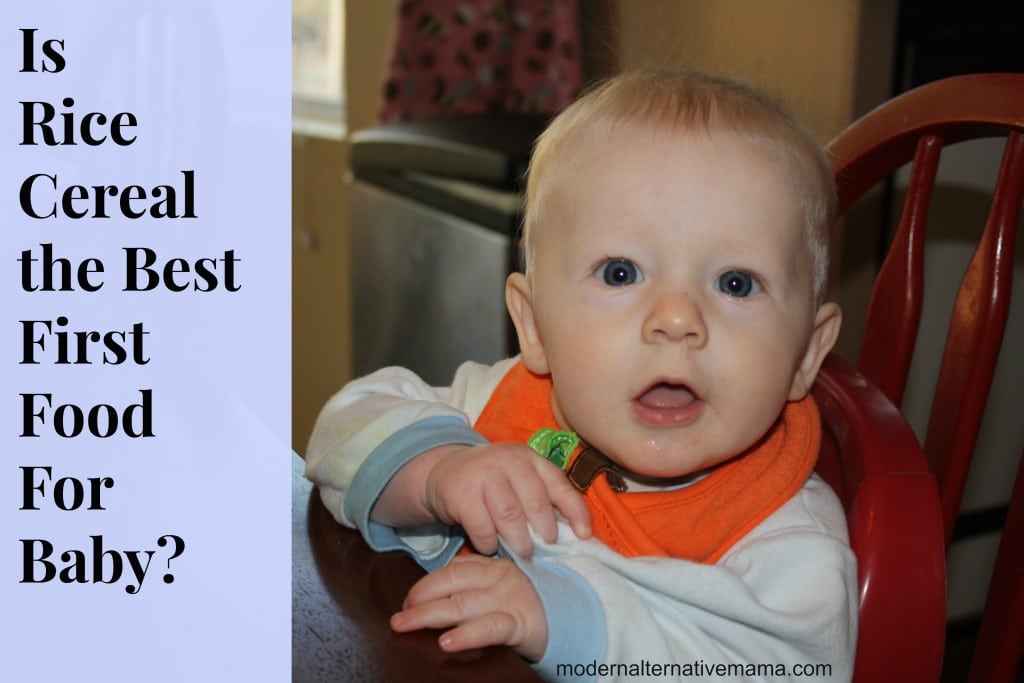

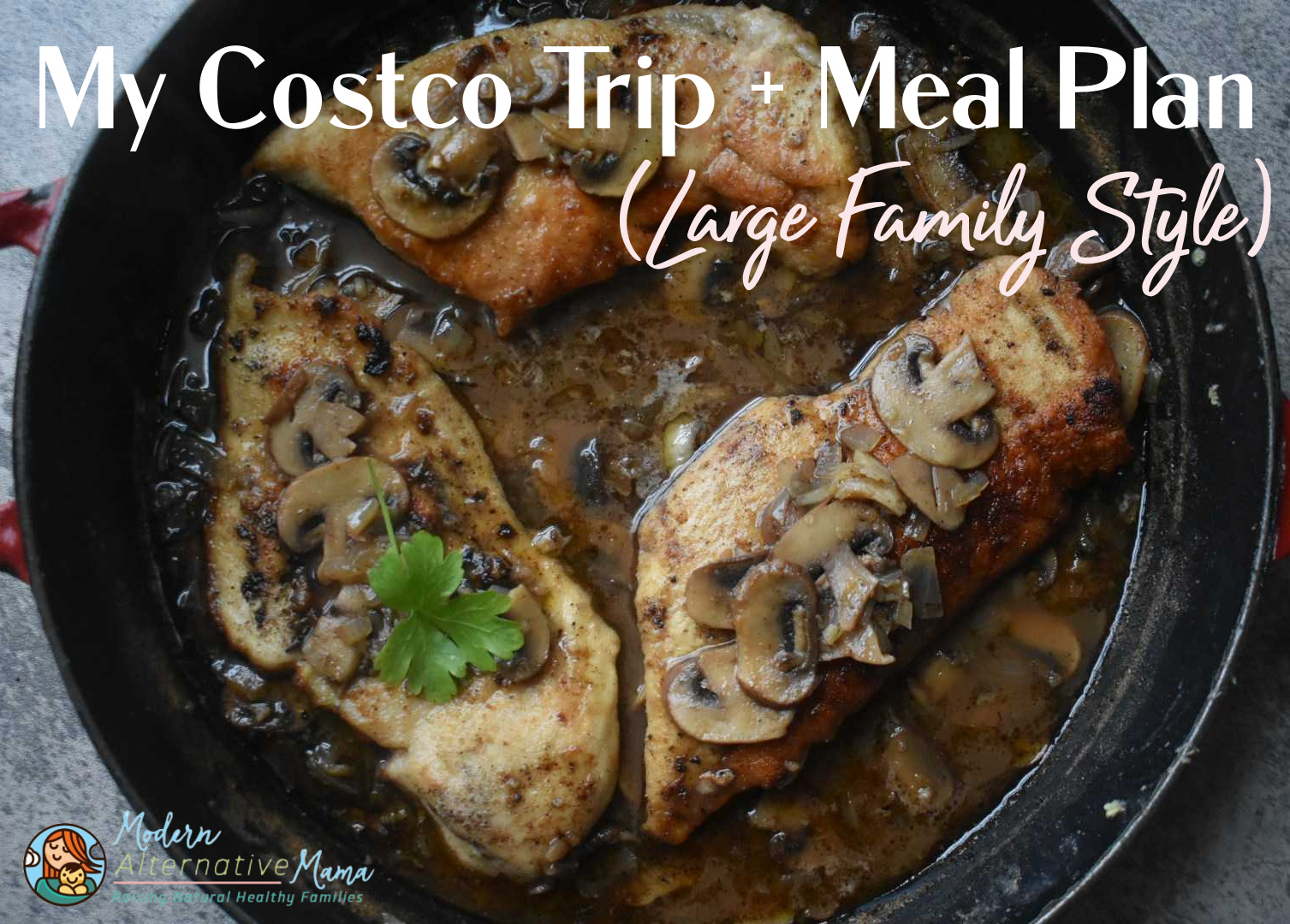
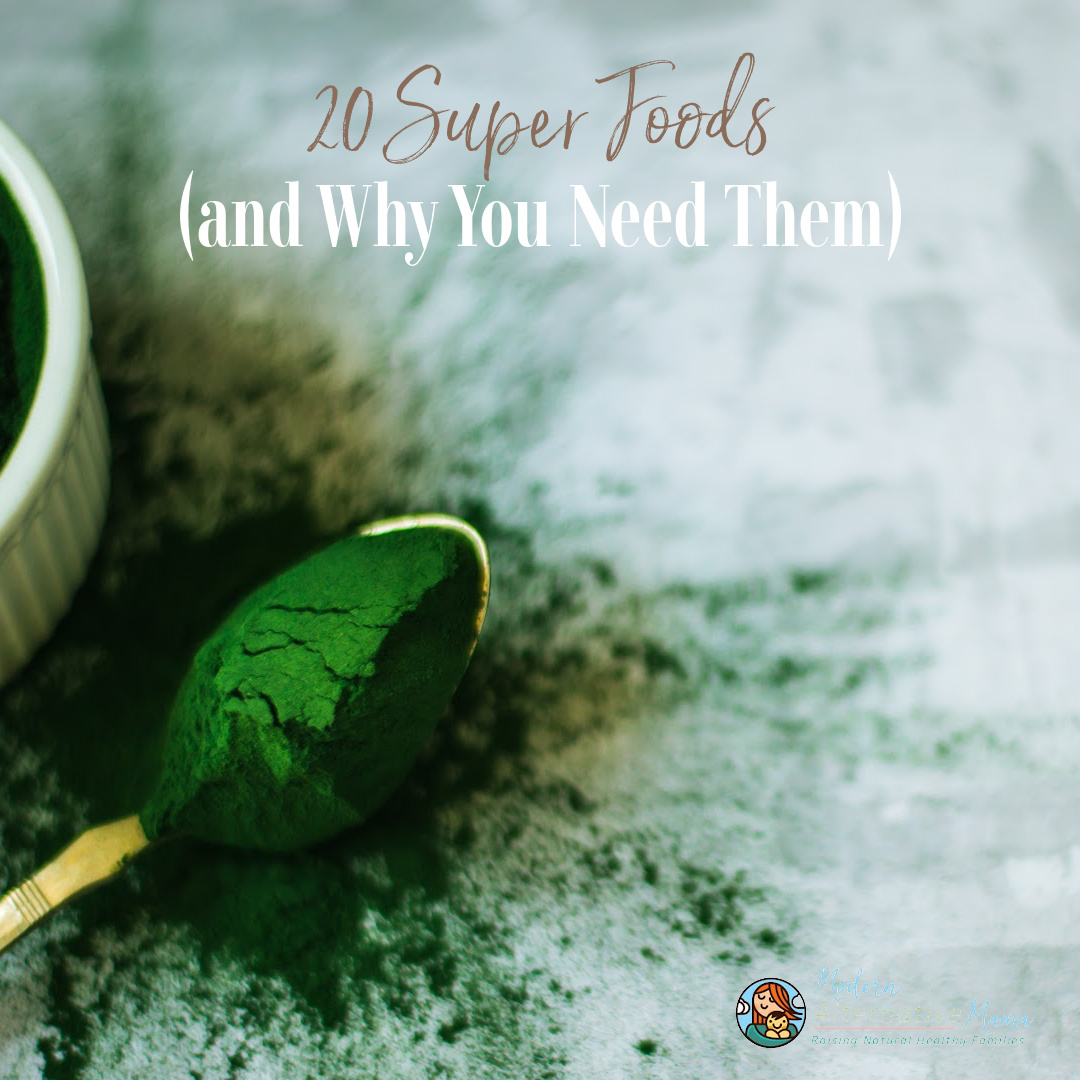
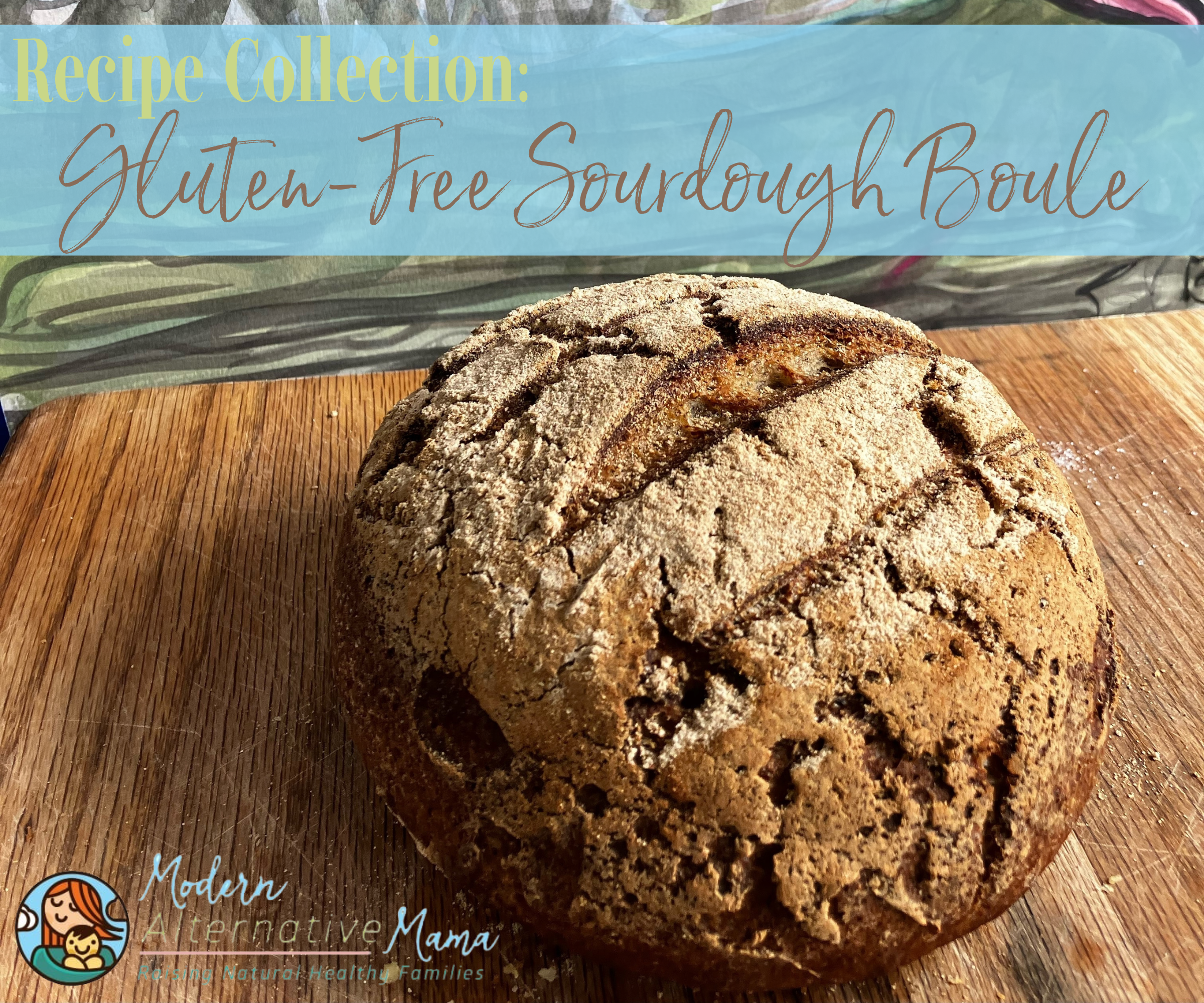
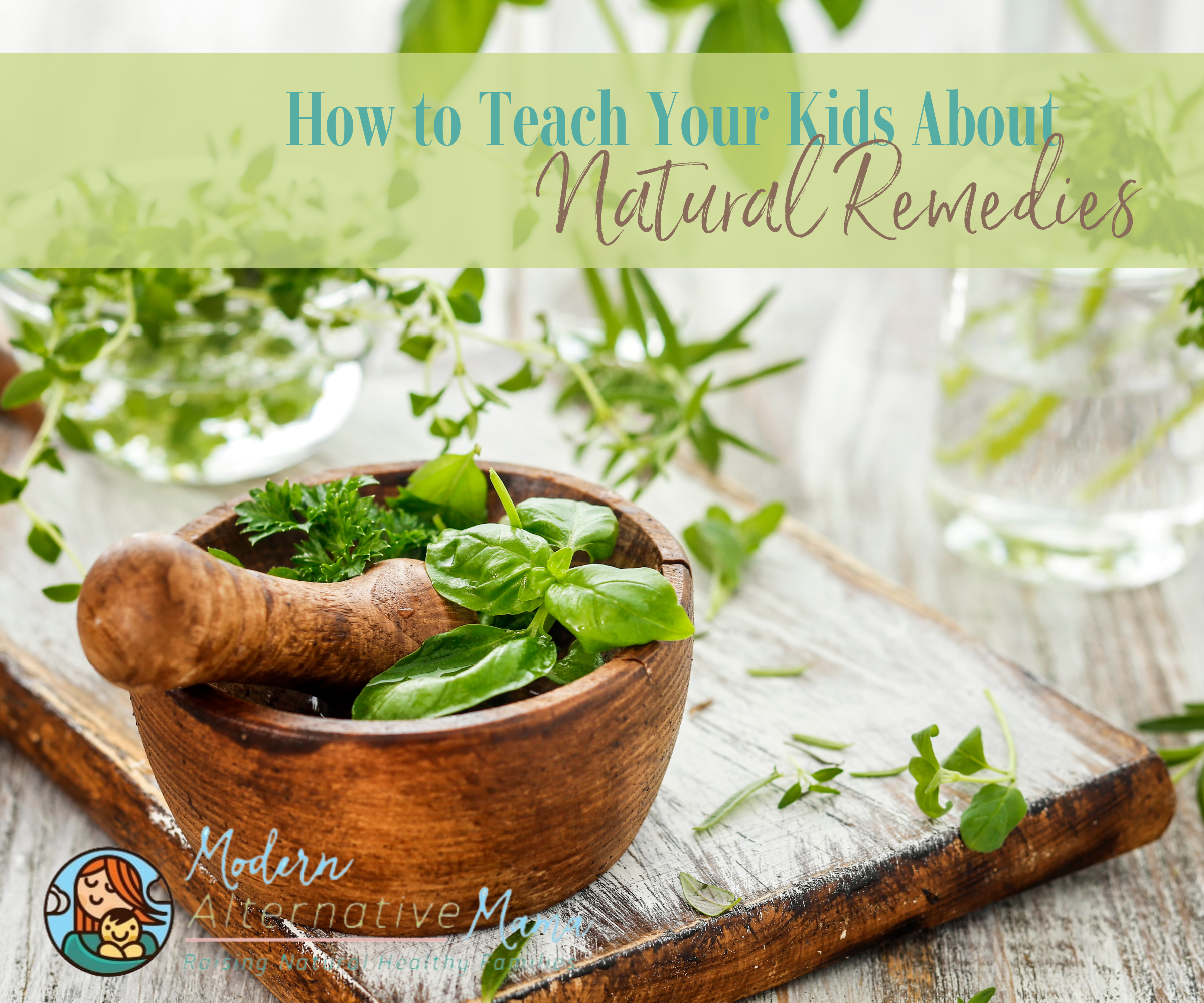

I started my guy out on vegetables. Home grown squash, avacado, sweet potatoes & spinach. I agree that the fortified processed baby cereals are not a good first food or later food for that matter. I did however start him on homemade millet cereal at. 8 months and only because my son attended a home daycare that was part of the USDA Cacfp program. I even had to get a signed Doctor note so my sons daycare could serve him the homemade millet cereal is it wasn’t iron fortified.
My son is 5 months old and completely breastfed right now. I have read that breastmilk is sufficient up to 6 months so I have begun to consider what to feed him starting in the next few weeks. It sounds odd to me for some reason to start with egg yolks, or even the avocado and veggies like the previous commenter said. I suppose I am paranoid that his digestive system will get a shock or something. Any thoughts you can share to help squash my apprehension on this, as well as other ideas? Thanks a lot!!
I know it can be a little intimidating when it comes time to start our babies on solids. I would definitely recommend starting your son with a nutrient-dense real food, however, instead of a processed cereal. One thing you can do to ease the transition is to mix the egg yolk or avocado (or whatever you choose to start him on) with some breastmilk. Start slowly and don’t stress it. Also, all babies are different, so if you aren’t comfortable starting him on solids right away, it’s OK to wait. My second child didn’t start solids until he was 9 months old. We tried at 6 months and he broke out in eczema. I stopped him on solids and waited three months to give his body time to heal and prepare for solids. At 9 months old he was much more equipped to handle solids and he no longer showed signs of food allergies.
I’m an old-fashioned mom. I breastfed my sons for up to two years (they both had allergies/sensitivities to cows milk). When I added more solid foods (about 9 months) I started with soft avocado and vegetables. All home prepared. When my sons were young I didn’t like the amount of salt and additives in prepared baby foods so I made their foods using our home cooked foods in a blender. It was a lot of work but I sure felt it was worth it. I wanted non-toxic, healthy beginning for them.
[…] Read all about our decision to not use rice cereal and what the research really shows at Modern Alte… […]
That was a fascinating study you did on why rice cereal may not be the best choice for babies! I never did rice cereal for either of my kids. My first son, now 3, we started on fruits and veggies mashed up. My second son, 9 months, we started on egg yolks (from our ducks), homemade yogurt and kefir, and some fruits and veggies. He loved avocado and bananas! Around 6 months, he started eating meat, and I actually gave it to him pre-chewed by me, which sounds gross but it’s pretty standard in other cultures. It adds enzymes that helps them digest food, and helps break it up.
We pretty much tried to go by Nourishing Traditions (though I didn’t do raw liver). We did finger foods early with both of my sons, and now our 9 month old pretty much eats what we eat, minus wheat, nuts, honey and anything crunchy. He does have 7 almost 8 teeth, so that helps 🙂
I have always taken the minimalist approach when feeding our babies. Especially with #2. And I really tried to focus on good fats and nutrient dense foods for our second. As I learned more about real food, it only made sense.
Everyone, it seemed, pushed cereals for both my boys….and often as young as newborn! My oldest had it a few times but it was used to thicken homemade fruit or veggie purees thatgot too thin. I tried rice cereal on my youngest…I didn’t want to,but heard it could help acid reflux and rice cereal is less “bad” than medications, but he wouldn’t touch it. I decided to not even try medications. He now eats pureed fruits and veggies and is otherwise exclusively breastfed.
I feel like the cereal push is all for money or something….cereal grains are actually a complex process so I bet for most of humans’ lives they began eating stuff like avocado, banana, mushy natural, ready made foods.
This may be a silly question… Do you cook the egg yolks? If so, how?
Cindy-many people serve their young ones soft boiled egg yolks. I have done that, as well as scrambled egg yolks or hard fried them.
I am in shock! I have been told by everyone i know to start my little one on rice cereal (including health advisor and pediatrician). I decided to do some research and just discovered all this info! Oh my goodness!
I know how overwhelming it can be to learn all this information. Not all baby cereals contain GMOs, but some of them do. That’s why it is so important to read labels. I also wrote a post about baby cereals. When I’m not mobile I’ll come back and link it up for you.
My pediatrician told me I could start rice cereal around 4 months! I’m doing lots of research on alternatives…and so I can back up my request for an except note for my daycare :/
Hi Dana,
There is lots of information on rice cereal alternatives even on mainstream websites. Or, I have a book called “Breast to Bib.” Do you really need a doctor’s note NOT to feed your baby rice cereal at daycare? Can you just say “I’m her mother and I don’t want her fed rice cereal?” The daycare works for YOU, you shouldn’t need permission to make decisions for your own child.
My daughter is just about 4 months old. I was going to start her on rice but after reading this I am now not sure. She is fully breastfed but I work full-time and can’t keep up with what she is wanting to eat. She is 10 pounds now and wants 30-36 ounces a day so it is solids or substitute with formula. Do you think it is to early to start her on egg yolks and how should I prepare them if so?
And also do any parents have any experience with Quinoa infant cereal?
Hi Samarra,
Some babies do not do well with egg yolks that young, so I probably wouldn’t do that yet. Have you looked into homemade formula, or breastmilk donors who could help you make up what you can’t pump?
Hi – Thank you for this information! My son is 4 months and in the 34% for his weight at 14 lbs. 12 oz. He is only breastfed. I’d like to avoid rice cereal and try mixing breast milk with egg yolk or avocado. Do you think I could try this at 5 months? Also, how much would you start with and would you increase the amount every few days? Do you continue with the same amount of breast milk as well? Thank you!!
Hi Ashley,
He sounds like he’s doing well! My boys were only about 15 lbs. at 6 months and then grew rapidly after their first birthdays — they didn’t start solids until between 7 and 12 months. If your son is happy while nursing, is growing well, plenty of wet/dirty diapers, meeting milestones, etc. then he may not need more. When he can sit well and shows an interest in eating, then introduce some foods. Breastmilk mixed with avocado or egg yolk sound like good options. I’d offer only a few spoonfuls at first, or even just put small bits of avocado on a tray in front of him, and see what he does with it. Keep nursing just as much. He won’t eat a lot until 8 – 12 months, most likely. Every baby’s a little different.
I started my son on egg yolks and avocado, mixed with breastmilk at around 5 months. He also would get small amounts of grass-fed, organic meats, and veggies pre-chewed by me or his father. I did give him brown rice, but I made it at home, and he had it very sparingly. We aren’t big grain eaters here. I’m very unconventional when it comes to how I raise and feed my baby. It makes no sense to me to feed my baby processed, fortified, genetically modified, DEAD food. He is 15 months now, still breastfeeding and thriving. He has only been sick once with a mild cold. He eats just about everything, including salmon and sardines, he loves broccoli, and all kinds of veggies. He actually prefers most of his veggies raw. He also loves fermented foods, like pickles, sauerkraut, kim chi, and natto. I make whole beet juices and green juices with the fiber and he loves those. I definitely recommend that we start out feeding our babies real, whole foods as fresh and untainted as possible.